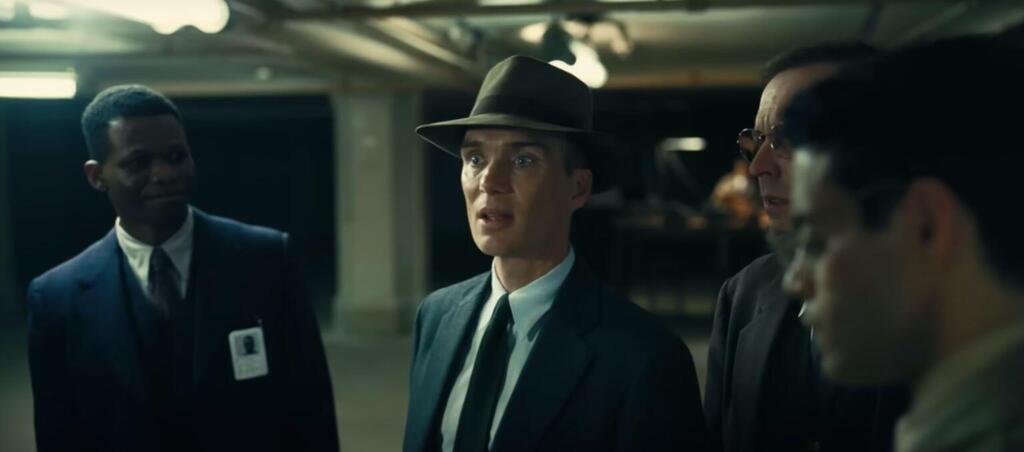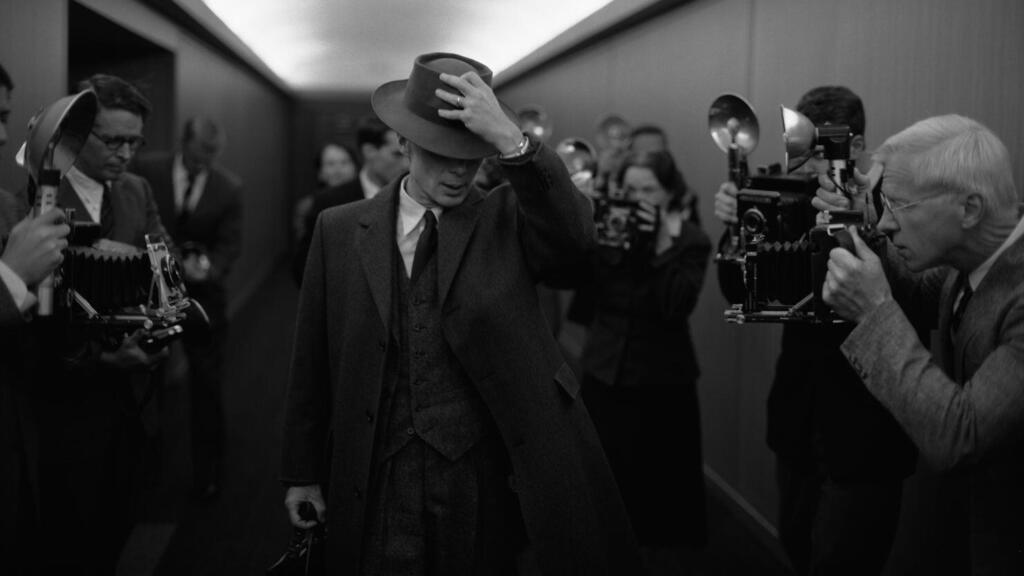A crowd's rhythmic thumping punctuates the air, their admiration directed at the figure who had a pivotal role in the outcome of World War II. Setting: the Los Alamos desert research base, marking the 78th anniversary of the atomic bombs' deployment on Hiroshima and Nagasaki. The film "Oppenheimer," now on silver screens world wide, casts its spotlight on Robert Oppenheimer, the Jewish-American physicist.
Read more:
He’s credited with rallying the brightest Western intellects to create the most formidable weapon ever known, ultimately heralding the end of a devastating war and commencing a new, awe-inspiring yet fearsome epoch. The atmosphere is charged with elation and dissonance. Unapologetic and as shell-shocked as those surrounding him, Oppenheimer proclaims: "I'll tell you one thing I know about the bomb: the Japanese didn't like it!" amid the crescendo of cheers. However, in the recesses of his mind, a chilling scream reverberates.
Heads up for mild spoilers for "Oppenheimer" in the following section. Though, it's tricky to actually "spoil" a biopic that unfolds a universally known historical tale (spoiler alert: the bomb goes off!). However, it's worth noting that Christopher Nolan's movie concludes by revisiting a seemingly insignificant early conversation between Oppenheimer and his friendly competitor, Albert Einstein. Their underlying rivalry always simmered beneath their interactions. Amid their playful jabs, there's a moment of remorse, quietly expressed, from one of them.
"Oppenheimer" is a fantastic film, but this is no longer a recommendation or a film review. In addition to being a portrait that could also be interesting as a book, mini-series or movie from 20 or 30 years ago, it also includes at the end a hidden and incredibly topical confession, which contains disgust, grumbling and, yes, also regret for the contemporary era. A terrible regret of those who thought they were improving the world "for the masses" and instead may be leading it to destruction.
Lately, the director has been vocal, almost prophetic, leveraging the acclaim of his movie to caution that the realms of science and tech are on the cusp of "a new Oppenheimer moment" – a crossroads between salvation and ruin – amid the rise of artificial intelligence
This can be seen as a confession by Nolan himself, an elitist and arrogant British director but with a career in Hollywood, about his place in the world of cinema. After all, he was hired almost 20 years ago to direct the high-budget "Batman" and "The Dark Knight" films, and was convinced that he had succeeded in teaching everyone how to make "blockbusters for the thinking man." Nolan saved the comic book genre, and the result: today there are only comic book movies in Hollywood, and a wasteland.
Yet, the remorse felt by Oppenheimer (or Nolan, for that matter) extends beyond just the character and the filmmaker. Lately, the director has been vocal, almost prophetic, leveraging the acclaim of his movie to caution that the realms of science and tech are on the cusp of "a new Oppenheimer moment" – a crossroads between salvation and ruin – amid the rise of artificial intelligence.
These fresh Stanford graduates in the tech industry claim to enhance your life with clever apps that dictate life choices, craft university essays, and even tackle your taxes. Yet, in a decade, entire professions like law and accounting might vanish. The very technology promising salvation could also be its undoing.
I'm in no position to posit a theory about future ramifications emanating from the rise of ChatGPT and the like. Like so many other pseudo-apocalyptic prophecies, this one could equally be full of hot air. That said, there is a sensation that won't subside, and it tells us there's a world we could have done justice to, only to squander that opportunity despite repeated warnings, both from ourselves and from others.



